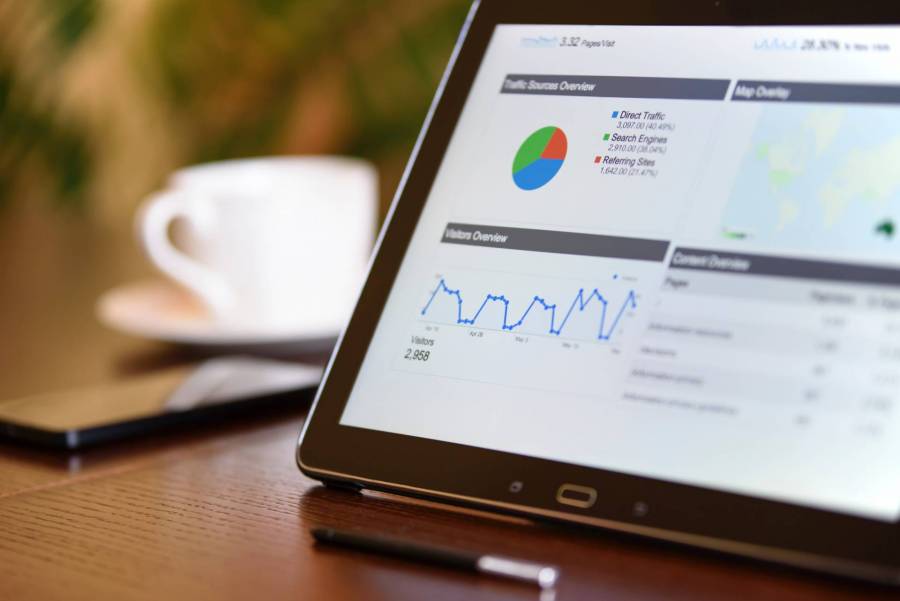Data analyst is the process in which the judgment, refining, changing, and modeling data takes place with the aim of making a better conclusion. Data analysis takes part in an important role, it helps in generating scientific conclusions and also increases the regulations in an organization. Here are six skills you need to become a data analyst.
Data-Driven Business Strategies
Today, with the deepening of the concept of data operation, more and more companies are aware of the value of data-driven business strategies and emphasize the participation of all employees in data operations. Developing the ability to analyze data is also a future trend.
A data analyst is someone who accumulates data, processes, and performs analysis of data. He or she can interpret numbers and data into simple English in order to help organizations and companies understand how to make better business decisions.
At its core, data analysis means taking a business question or need and turning it into a data question. Then, you’ll need to transform and analyze data to extract an answer to that question.
Companies of today realize how data-driven strategy is important to them and they are in need of talented individuals who can provide insights into a constant stream of collected information.
Types of Data Analysts
- Finance
- Data assurance
- Business Intelligence
- Marketing
- Sales
The types of data analyst listed above are some of the most challenging fields which require a data analyst in their management.
Here are 6 skills you need to become a data analyst.
1. MATHEMATICAL SKILLS
Mathematical skills are important for making a profession in data analysis, as you have to play with numbers and figures all through the day. Necessary mathematics skills include:
*One should be good at calculations
*Measuring and analyzing data
*Having the ability to organize information
*One should know how to schedule and budget
Mathematical skills help in having better problem-solving skills — and also helps in financing our individual businesses.
2. ANALYTICAL SKILLS
As it is called, It is clear that analytical skills are the huge significance of data analysis. These skills include assembling, sorting, and analyzing all kinds of raw data in particular. It also helps you to view provocation or situation from a different angle. Hence, If you want to be a professional data analyst then you need to widen your analytical skills and thinking. Analytical skills help in viewing a challenge or situation from different perspectives. It is one of the most important and efficient parts of the skill you need to become a data analyst.
3. TECHNICAL SKILLS
Good computer and technical skills are very important. The main knowledge of statistics is quite helpful as well as producing languages like python or Mat Lab, and analytical languages like R and SAS are very favorable to know as a data analyst.
The more language you know, the faster and better for you to get your dream job. Examples of technical skills you need to know are:
- Programming languages.
- Common operating systems.
- Software proficiency.
- Technical writing.
4. DETAILS SKILLS
Data analyst is all about details, It helps a data analyst to be able to find and see any basic unseen errors and links, that is especially important at the point of solving problems and making decisions.
5. BUSINESS SKILLS
Aside from the technical skills, there are some business skills that one should acquire to function as a Data analyst. Some of which are:
Communication Skills:
As a data analyst, you are expected to work with different sets of people in your team which makes your communication a really important part of your job. Working well together as a team for the benefit of your organization is also one of your main responsibilities and skill.
You should be able to communicate effectively with the teammates to prepare, present, and explain data. Communication is key in collaborating with your colleagues. For example, in a kickoff meeting with business stakeholders, careful listening skills are needed to understand the analyses they require.
Similarly, during your project, you may need to be able to explain a complex topic to non-technical teammates.
Time Management and Organizational Skills:
As it is expected of you to work with different people in your team. You should be able to manage your time including your responsibilities, as well as meet your deadlines.
Decision-making and Problem-solving:
These skills are the bottom line of data analysis. The main job of a data analyst is to give the right information for decision-making and problem-solving process. Which is why it occurs to be a perfect skill required to be a data analyst.
You might need to research a quirk of some software or coding language that you’re using. Your company might have resource constraints that force you to be innovative in how you approach a problem.
The data you’re using might be incomplete. Or you might need to perform some “good enough” analysis to meet a looming deadline.
6. DOMAIN KNOWLEDGE
Domain knowledge is understanding things that are specific to the particular industry and company that you work for. For example, if you’re working for a company with an online store, you might need to understand the nuances of e-commerce. In contrast, if you’re analyzing data about mechanical systems, you might need to understand those systems and how they work.
Domain knowledge changes from industry to industry, so you may find yourself needing to research and learn quickly. No matter where you work if you don’t understand what you’re analyzing it’s going to be difficult to do it effectively, making domain knowledge a key data analyst skill.
Remember that Domain knowledge is certainly something that you can learn on the job, but if you know a specific industry or area you’d like to work in, building as much understanding as you can upfront will make you a more attractive job applicant and a more effective employee once you do get the job.
Once you have the skills mentioned above — you can use them to attract attention to yourself so as to get your dream job. These are the criteria you need for the data analyst skills checklist.
Academic Background
A bachelor’s degree is often necessary, not all the time though. To work as a data analyst you need to acquire a degree in any of these Science courses.
- Economics
- Business information systems
- Mathematics
- Statistics
- Computer science
As much as the above degrees are important for your success — what matters the most are the skills that you possess. Right now during the COVID-19 problems may be the time for you to upgrade yourself and your skills.
Conclusion
Data analysis is speedily growing field and skilled data analysts are huge in demand throughout the country, in every industry. This means that you would find many opportunities only if you are exceptional and show your excellent data analytic skills.




















